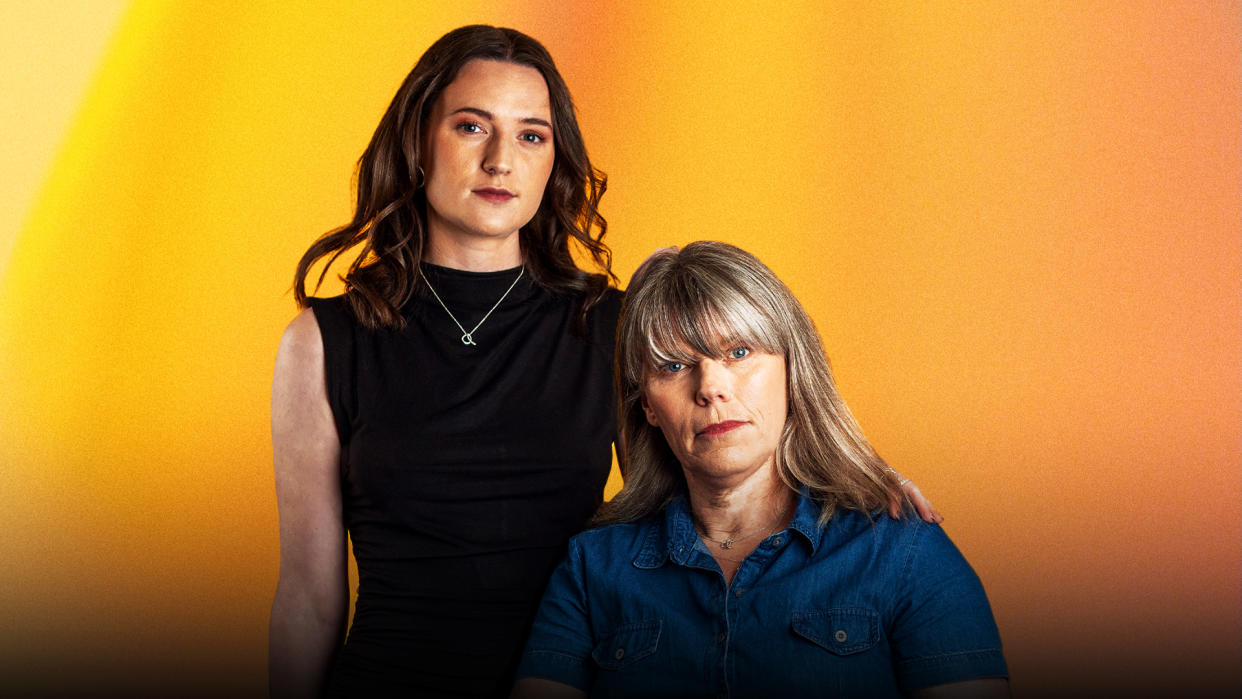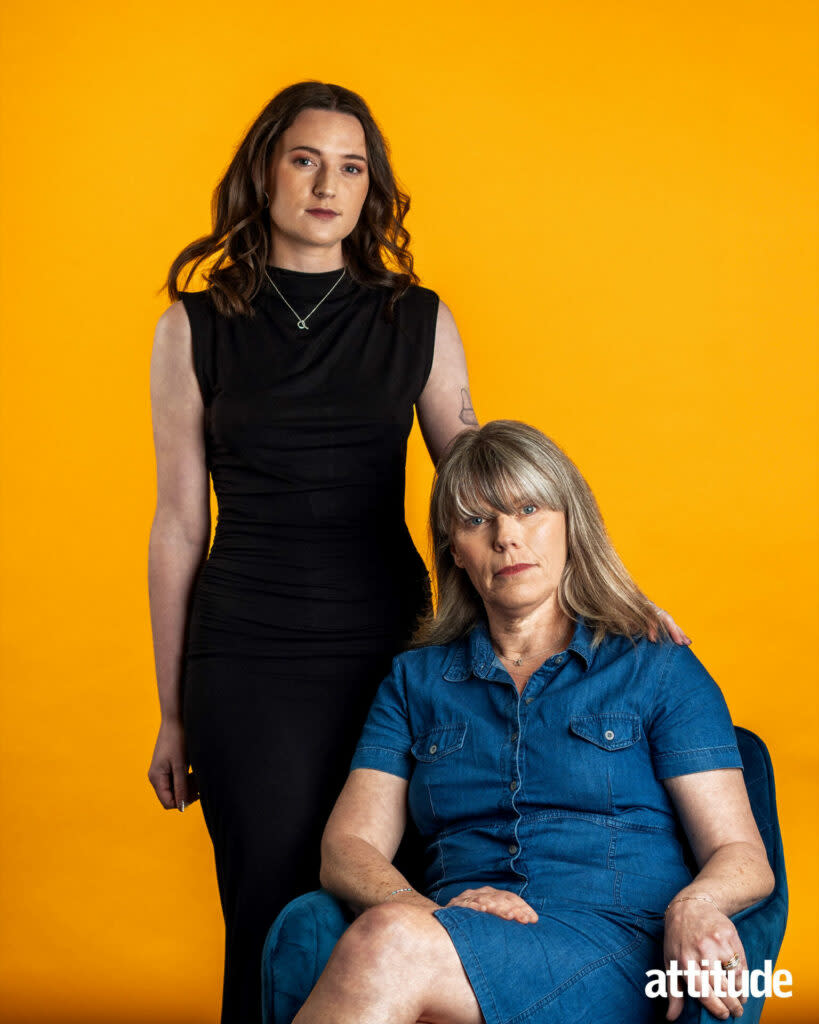Alice Litman’s family is fighting for better trans healthcare

“I always struggle,” says Caroline Litman after being asked to describe what her daughter, Alice, was like. “She was lovely,” Caroline settles on. “She never caused a moment’s trouble, she got on with everybody. And everybody loved her,” she adds. Alice’s older sister, Kate, remembers Alice’s oversized jumper, her “tiny” hot pants, and her love of dance. The pair are representing their family at the PEUGEOT Attitude Pride Awards.
Alice took her own life on 26 May 2022. She was 20. Alice had been waiting for more than 1,000 days for an appointment with the now-defunct gender clinic at the Tavistock and Portman NHS Trust. She had been referred there in 2019 after attempting suicide and was also referred to Child and Adolescent Mental Health Services (CAMHS).
In 2020, Alice, then 18, was transferred to adult mental health services, but they quickly discharged her, citing no enduring problems. But in 2023, an inquest concluded that delays in accessing gender-affirming healthcare “contributed to a decline in her mental health” and that Alice’s mental health support was “half-hearted”.
Caroline, a former NHS psychiatrist of 12 years, goes further, describing CAMHS as “a traumatising experience”. When a consultant psychiatrist was called for, she had thought that Alice was being taken seriously. However, when Alice didn’t want to be admitted as an inpatient, she was quickly considered low risk despite her past suicide attempts. Alice was also frequently misgendered and, having also disclosed her bisexuality, misunderstood. At the same time, there was an absence of support from gender services in what Kate calls “an abdication of responsibility”. She continues, “Both [mental health services and gender services] saw it as the other one’s role and that was something that came out of the inquest.”
“It showed that the services are functionally nonexistent because Alice had no way of accessing them”
Accessing gender-affirming care in general was also traumatising. During Alice’s inquest, it was found that someone referred at that time would be waiting 20 years for their first appointment at a gender clinic. Caroline was overwhelmed by the obstacles that exist. “All these barriers sap you of your energy, and you feel very unimportant, hopeless, and that nobody wants to help you,” she says.
Kate adds, “It showed that the services are functionally nonexistent because Alice had no way of accessing them and knew that she would be waiting years. It was a big reason that she lost hope.”
All of this and more is why Alice’s family have set up the Campaign for Alice with the aim of making trans healthcare more accessible. Caroline and Kate believe the best way of doing this is by embedding trans healthcare with GPs, citing Wales as an example that is “second to none”. At NHS Wales, the current waiting time for a first appointment with gender services is 15 months.

Both Caroline and Kate were unimpressed by the recent Cass Review into gender services in England and are concerned about the level of “gatekeeping” it recommends.
The Campaign for Alice also wants to change the “incredibly dispiriting” discourse around trans people. Kate blasts politicians who joke at the expense of trans lives, stating, “For trans people, it can be a matter of life and death.” A 2023 Home Office report found that a 186 per cent rise in transphobic hate crimes over five years could be attributed to anti-trans rhetoric from politicians and the media. Kate adds, “It’s impossible to express the level of devastation that the trans culture war has brought on our family and on Alice while she was alive. Politicians aren’t interested in understanding that loss and understanding our loss of Alice and everything that Alice lost.”
“No amount of campaigning will bring Alice back”
Caroline has spoken powerfully on social media about changing her views after realising Alice was trans. “I’m called a groomer quite often by gender-critical people,” she shares. “And that Alice must have been groomed. But if you flip that around, it’s like the media is grooming the general population with their constant drip-feeding of negative articles.” Earlier this year, Trans Media Watch, a charity focusing on improving trans media coverage, reported that in 2012 there were 60 trans-related stories. That rose to around 7,500 in 2022, a staggering increase of 12,400 percent.
Caroline regrets Alice didn’t grow up in a household where trans people were discussed “with the ease and grace” used for others. She wants to stop that but fears “I haven’t got that power.” Kate jumps in, saying, “We really hope that learning about Alice and seeing her as someone who had hopes and dreams and friends and family will change people’s minds.”
On winning a PEUGEOT Attitude Pride Award, Caroline says it’s delightful that she’s considered deserving of it. “It gives me the confidence to carry on and the reassurance that what I’m doing is adding value.” Kate is also heartened, but adds, “It’s tinged by knowing that we shouldn’t have to do this. No amount of campaigning will bring Alice back.”
This feature appears in Issue 359 of Attitude magazine, which is available to order online here and alongside 15 years of back issues on the free Attitude app.

The post Alice Litman’s family is fighting for better trans healthcare appeared first on Attitude.

 Yahoo News
Yahoo News 
